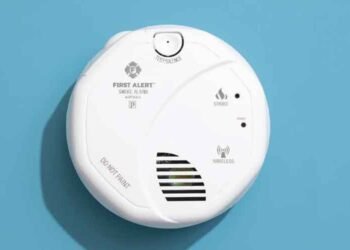Radio Frequency Identification (RFID) technology has revolutionized industries by offering efficient tracking, data collection, and management solutions. Whether you’re looking to streamline inventory management, enhance security, or improve operational efficiency, choosing the right RFID solutions provider is crucial. Asking the right questions is essential to ensure a successful partnership and implementation. Here are key questions to ask before partnering with an RFID solutions provider.
1. What Experience Do You Have in Our Industry?
RFID technology is versatile and applicable across various industries, from retail and healthcare to logistics and manufacturing. However, each industry has unique requirements and challenges. It’s vital to partner with a provider who understands your specific industry. Ask about their experience, past projects, and case studies in your sector. An experienced provider will be better equipped to understand your needs and offer tailored solutions.
2. Can You Provide a Detailed Overview of Your RFID Solutions?
Not all RFID solutions are created equal. They can vary significantly in terms of technology, hardware, and software. Ask for a detailed overview of the provider’s RFID solutions, including the types of RFID tags, readers, antennas, and software systems. Understanding the available options will help you assess whether the provider’s solutions align with your business requirements.
3. What Customization Options Are Available?
Businesses often have unique needs that off-the-shelf RFID solutions may not fully address. Inquire about the provider’s ability to customize their solutions to fit your specific requirements. This could involve tailoring the software to integrate with your existing systems, designing custom tags, or modifying hardware components. Customization ensures that the RFID system meets your needs and optimizes your operations.
4. What is Your Implementation Process?
Implementing an RFID system can involve hardware installation, software integration, and staff training. Understanding the provider’s implementation process is critical to ensure a smooth rollout. Ask about the timeline, key milestones, and the roles and responsibilities of both parties. A well-defined implementation plan minimizes disruptions and ensures a successful deployment.
5. How Do You Handle Data Security and Privacy?
Data security is a top concern, especially when dealing with sensitive information. RFID systems often handle large amounts of data, making them potential cyber-attack targets. Ask the provider about their data security measures, including encryption, access controls, and data storage practices. Ensure they comply with relevant regulations and industry standards to protect your data.
6. What Support and Maintenance Services Do You Offer?
Even the most well-designed RFID systems require ongoing support and maintenance. Inquire about the provider’s support services, including availability, response times, and the scope of support (e.g., software updates, hardware repairs, troubleshooting). A reliable support and maintenance plan ensures your RFID system remains functional and up-to-date.
7. Can You Provide References or Case Studies?
A reputable RFID solutions provider should be able to provide references or case studies from previous clients. These can give insights into the provider’s capabilities, reliability, and customer service. Reach out to these references for firsthand feedback on their experience with the provider and the success of their RFID implementations.
8. What are the Total Costs Involved?
Cost is a critical factor in any business decision. Ask for a comprehensive breakdown of the costs of implementing and maintaining the RFID system. This should include hardware, software, installation, training, and ongoing support. Understanding the total cost of ownership helps you budget appropriately and avoid unexpected expenses.
9. How Scalable is Your RFID Solution?
As your business grows, your RFID needs may evolve. It’s essential to choose a solution that can scale with your company. Ask the provider about the scalability of their system, including the ease of adding new tags, readers, and software features. A scalable solution ensures that your investment remains viable as your business expands.
10. Do You Offer Training and Education?
Effective use of an RFID system requires proper training for your staff. Ask the provider if they offer training sessions, user manuals, and other educational resources. Proper training ensures that your team can fully leverage the RFID system’s capabilities, leading to better adoption and smoother operations.
Conclusion
Finding the best vendor for RFID solutions is a critical decision that can significantly impact your business operations. By asking these key questions, you can better understand the provider’s capabilities, ensure alignment with your needs, and make an informed decision. A successful partnership with an RFID solutions provider can improve efficiency, improve data management, and give you a competitive edge in your industry.












